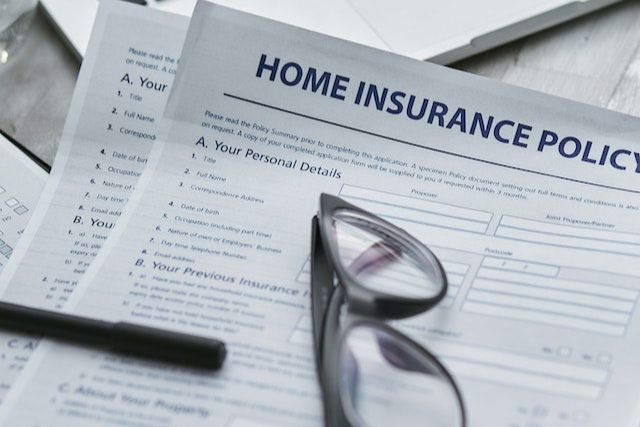If you’ve recently gone through the process of filing a homeowners insurance claim for roof damage, you may be wondering what happens if you don’t use the insurance money to fix your roof. While it may be tempting to use the funds for other expenses, there are consequences to consider.
In this article, we’ll explore what happens if you don’t use your insurance money to fix your roof, discussing the policies, claims, and potential legal issues that can arise.
Whether you’re a homeowner facing roof damage or just curious about the insurance claims process, read on to discover everything you need to know about the consequences of not using insurance money to fix your roof.
Table of Contents
The Consequences of Not Fixing Your Roof
Choosing not to address roof damage can have significant consequences for both your home and your wallet. When left unattended, even minor issues can escalate into major problems over time. Here are a few key repercussions of neglecting to fix your roof:
- Structural Damage: A damaged roof can compromise the structural integrity of your home. Leaks can lead to rotting wood, weakening the overall framework and potentially causing extensive damage to your walls, ceilings, and other areas of your property. Ignoring the problem could result in expensive repairs down the line.
- Increased Energy Costs: A damaged roof can also affect your home’s energy efficiency. Leaks or inadequate insulation can allow cool or warm air to escape, causing your heating or cooling system to work harder. As a result, your energy bills may soar, putting a strain on your finances.
- Mold and Mildew Growth: Moisture intrusion from a damaged roof creates a favorable environment for mold and mildew to thrive. These can lead to health issues such as allergies, respiratory problems, and even serious infections. Additionally, mold remediation can be expensive and time-consuming.
- Decreased Property Value: Neglected roof damage can significantly decrease the value of your property. When it comes time to sell, potential buyers will likely notice the visible signs of a damaged roof and use it as a bargaining chip to negotiate a lower price. Investing in roof repairs or replacements helps maintain your home’s value and attracts potential buyers.
Legal and Insurance Implications
When you have homeowner’s insurance, it is essential to understand the legal and insurance implications of not using the funds for roof repairs. While insurance policies can vary, there are common considerations to keep in mind:
- Breach of Insurance Policy: Failing to address roof damage and not using insurance money for its intended purpose may be considered a breach of your insurance policy. Insurance companies expect you to take reasonable steps to mitigate damage and maintain your property. If they determine that you did not fulfill your obligations, it may impact your ability to make future claims.
- Coverage Limitations: Some insurance policies have limitations on coverage for roof damage if repairs are not promptly addressed. If you delay fixing your roof, you may find that your insurance coverage decreases or becomes void for any subsequent damages related to the initial problem.
- Claim Denial: If you don’t use your insurance money to fix your roof, your insurance company may deny future claims related to the unresolved roof damage. This denial could apply not only to further roof issues but also to any other damages that may have resulted from the initial problem.
- Legal Consequences: In some cases, neglecting to repair your roof may result in legal consequences. For example, if your damaged roof causes harm to others or their property, you may be held liable for the damages. Additionally, if your neglect leads to a violation of local building codes, you may face penalties or fines.
It’s crucial to consult your insurance policy and understand the terms and conditions of your specific coverage.
Reach out to your insurance provider or an attorney specializing in insurance law to gain clarity on any potential legal or insurance implications.
The Importance of Addressing Roof Damage
Now that we’ve explored the consequences and implications of not using your insurance money to fix your roof, it’s clear that addressing roof damage is of utmost importance. Here are a few reasons why taking prompt action is crucial:
- Preserving Your Home: Your home is a significant investment, and its structural integrity should be a priority. By promptly addressing roof damage, you protect your home from further deterioration and ensure its long-term stability. Remember, a small repair today can save you from major headaches and expenses in the future.
- Ensuring Safety: A damaged roof can pose safety risks to you and your loved ones. Leaks can lead to electrical hazards, and weakened structures may be at risk of collapsing during severe weather events. By addressing roof damage, you create a safe living environment for everyone in your home.
- Preventing Additional Expenses: Ignoring roof damage doesn’t make it disappear; it only exacerbates the problem. The longer you wait to fix your roof, the more extensive the damage becomes. By addressing the issue promptly, you can prevent further damage to your home, avoiding costly repairs that could have been avoided.
- Maintaining Insurance Coverage: Your homeowner’s insurance is designed to protect you from unforeseen events. However, insurance companies expect policyholders to fulfill their obligations in maintaining and repairing their property. By using your insurance money for its intended purpose, you demonstrate responsible behavior, ensuring that your coverage remains intact for future incidents.
Options for Using Insurance Money
When you receive insurance funds for roof repairs, you have a few options for utilizing the money. Here are some common choices:
- Hiring a Professional Roofing Contractor: Engaging the services of a reputable roofing contractor is often the best course of action. They have the expertise, experience, and tools to assess the damage accurately and provide appropriate repairs or replacements. Research and choose a licensed and insured contractor to ensure quality workmanship.
- Obtaining Multiple Quotes: It’s advisable to obtain multiple quotes from different roofing contractors. This allows you to compare prices, services offered, and warranties provided. Be sure to review their qualifications, certifications, and customer reviews to make an informed decision.
- Emergency Repairs: If the damage is severe and requires immediate attention, it’s essential to allocate funds for emergency repairs. Temporary fixes can help prevent further damage until a permanent solution can be implemented.
- Upgrades or Enhancements: If your insurance coverage exceeds the necessary repairs, you may consider using the extra funds to upgrade your roof. For instance, you might opt for higher quality materials, improved insulation, or additional features that enhance the longevity and energy efficiency of your roof.
Remember, it’s crucial to keep all documentation, including receipts and invoices, related to the repair process.
These documents serve as evidence of the repairs made and can be useful when dealing with insurance adjusters or potential future claims.
How to Deal with Insurance Adjusters
When it comes to using your insurance money for roof repairs, you may interact with insurance adjusters who assess the damage and determine the appropriate coverage. Here are some tips for effectively dealing with insurance adjusters:
- Promptly Report the Damage: Notify your insurance company about the roof damage as soon as possible. Provide them with accurate and detailed information about the incident, including photos and any supporting documentation.
- Document the Damage: Take photographs or videos of the roof damage before any repairs are made. This visual evidence will support your claim and ensure that the adjuster has a clear understanding of the extent of the damage.
- Keep Records of Communication: Maintain a record of all communication with your insurance company and the adjuster. Note down dates, times, and the names of individuals you speak with. This documentation will help you stay organized and provide reference points if any issues or disputes arise.
- Be Cooperative and Transparent: Cooperate with the insurance adjuster throughout the process. Provide them with any requested documentation or information promptly and accurately. Be transparent and honest about the condition of your roof and the repairs needed.
- Understand Your Policy: Familiarize yourself with the terms and conditions of your insurance policy. This knowledge will help you understand the coverage and ensure that you are receiving fair compensation for the necessary repairs.
- Get Multiple Estimates: It’s advisable to obtain multiple estimates from reputable roofing contractors. This will allow you to compare the proposed costs and scope of work. Share these estimates with the insurance adjuster to ensure that the reimbursement aligns with the prevailing market rates.
- Seek Professional Guidance: If you encounter challenges or disputes with the insurance adjuster, consider seeking guidance from a public adjuster or an attorney specializing in insurance claims. They can provide expert advice and advocate for your rights and interests.
Remember to remain patient throughout the process. Dealing with insurance adjusters and navigating the claims process can sometimes be time-consuming. However, by being proactive, organized, and cooperative, you can increase the likelihood of a fair resolution.
Conclusion
In conclusion, neglecting to use your insurance money to fix your roof can have severe consequences for your home and finances. It can lead to structural damage, increased energy costs, mold growth, and decreased property value.
Furthermore, there are legal and insurance implications, such as breaching your insurance policy or facing claim denials.
Addressing roof damage promptly is crucial to preserve your home, ensure safety, prevent additional expenses, and maintain insurance coverage.
When using your insurance funds, explore options like hiring professional contractors, obtaining multiple quotes, addressing emergency repairs, or considering upgrades.
Finally, when dealing with insurance adjusters, maintain open communication, document all interactions, and seek professional guidance if necessary. By taking these steps, you can navigate the process effectively and protect your home for years to come.







